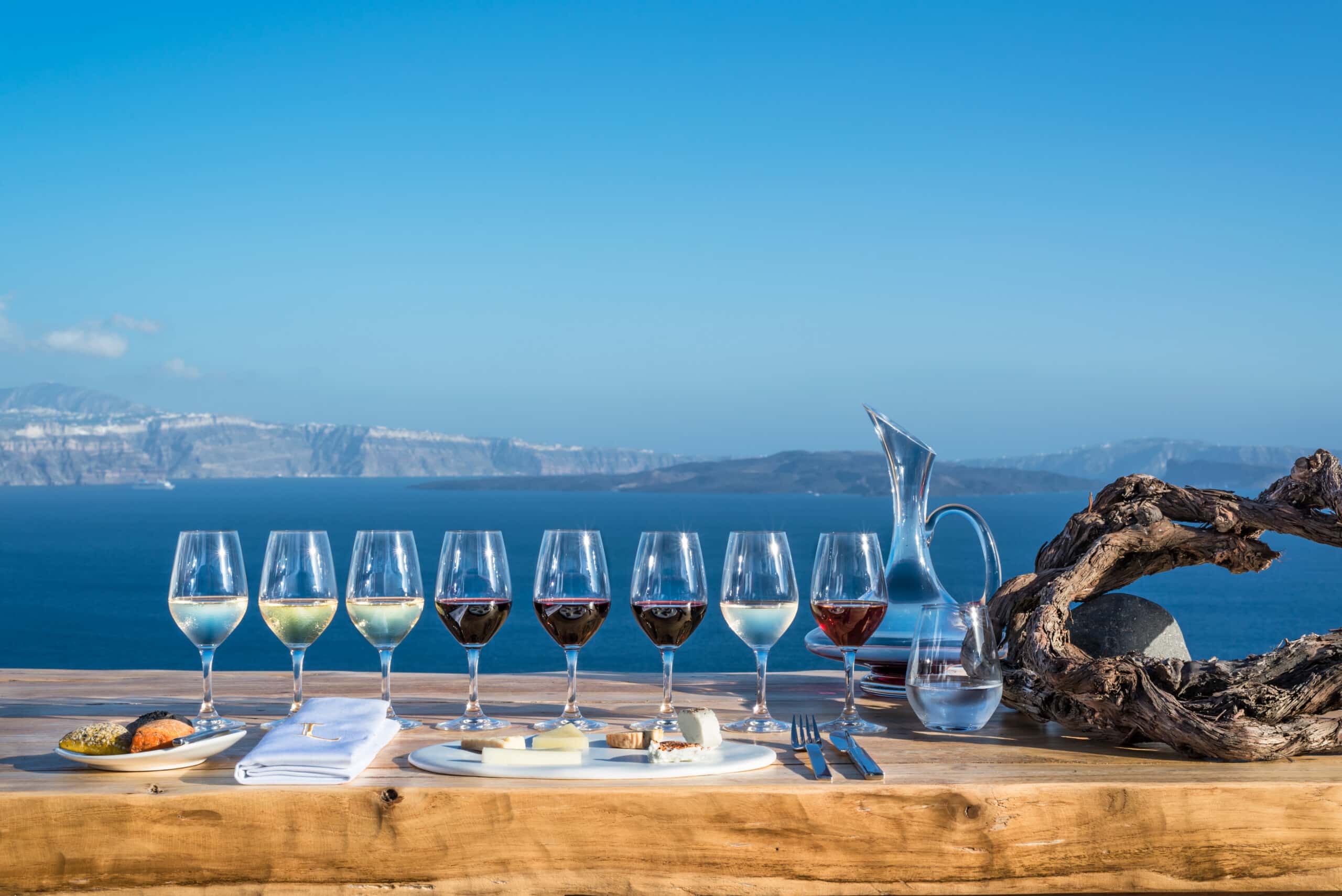SANTORINI WINES ACROSS HISTORY
Production of wine on Santorini dates back to prehistoric times. There are testimonies that prove that people were involved with the cultivation of vine even before the volcanic eruption. More specifically, there are clay pots, vessels and frescos paintings that demonstrate the whole procedure of how wine was being made at the time. After the eruption of the volcano people in Santorini are continuously cultivating vines for 34 centuries.
Between 1200 AC and 1579 AC Santorini was under Venetian rule. This was beneficial for the Santorini wines as they established a systematic cultivation, using advanced methods of the western world. The monks living on the island began to keep records of the procedures and this was when research started taking place.
Later on, during Turkish rule, wine cultivation was only taking place on the island for commercial purposes. As a result, there was no advance in the procedures, and new methods of western Europe such as bottling were not implemented. The first bottling in Santorini took place in 1967.
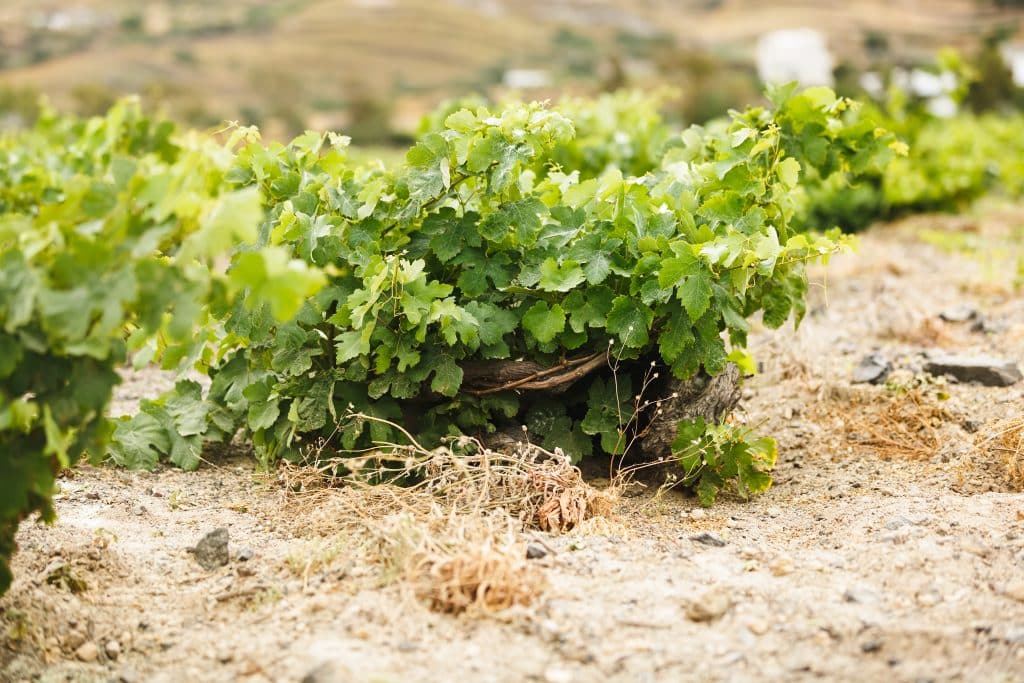
Afterward, the farmers of the island started to make their own wines for their own use. This is why hundreds of canaves (caves carved in the rocks of the caldera where locals used to store the wine) are to be found around the island. Wine in Santorini became industrial when Venetsanos, the first winery opened.
More recently, in 2004 on the occasion of the Olympics organised in Greece, the promotion of local products and PDO wines started. “There was a big demand for the Santorinian wine and quantities were limited, so finding it became the quest of the Holy Grail” Sotiris states.
WHY IS SANTORINI WINE SO SPECIAL?
Santorini has a unique terroir, being one of the 19 appellations holds the scepter of being the best. The volcanic soil, the sea breeze, the strong winds, and the sun synthesize a great character to the wines. The weather conditions and the unfertile soil welded the wines to survive in this harsh environment. The age of the self-rooted vines handed the wisdom to the viticulturists (grape growers) to practice unique ways of pruning, such as “kouloura” and “kladeftiko”.
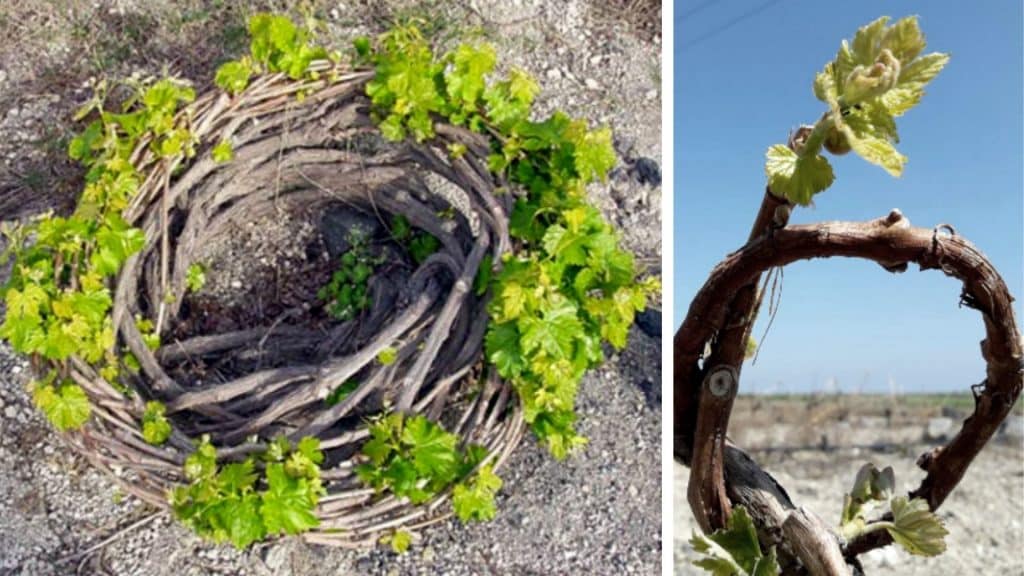
Finally, Sotiris says, “The winemakers play a significant role by giving soul to the efforts of nature and Anthropos *(human being). They do that knowing the great responsibility they carry.”
* The use of the Greek word Anthropos was in purpose. When we use the word human, we refer to the materialist meaning of it, but when we use Anthropos we refer also to the mental dimension. According to Plato, Anthropos is different from the other beasts because the beasts do not investigate, ponder, or observe anything carefully. On the other hand, Anthropos sees and observes carefully and thinks. “The one who examines what he has seen”. This is why we study anthropology and not humanology.
The dominant variety is the white wine Assyrtiko covering the 75% of the production, then other Santorini white wines follow with 20% and only 5% of the production is red wine. Let’s not forget the famous Vinsanto, a naturally dessert wine that combines acidity and intense sweetness.
WHAT IS THE “BEST SANTORINI WINE”?
“I don’t have a favorite one since I can not compare different wines. When suggesting a wine I always trust my perspective about the mood, the company, the occasion, the venue. Although, I personally love assyrtiko that ferments in stainless still or concrete that also stays on the fine lees (sur lies method) for several months” he claims.
There are many wineries (such as Karamolegos Winery, Estate Argyros Winery and Gavalas Winery) and wine bars in Santorini where someone can try different flavors. Another great way to discover Santorini’s rich wine history is by doing a wine tour around the island, or by visiting the wineries.
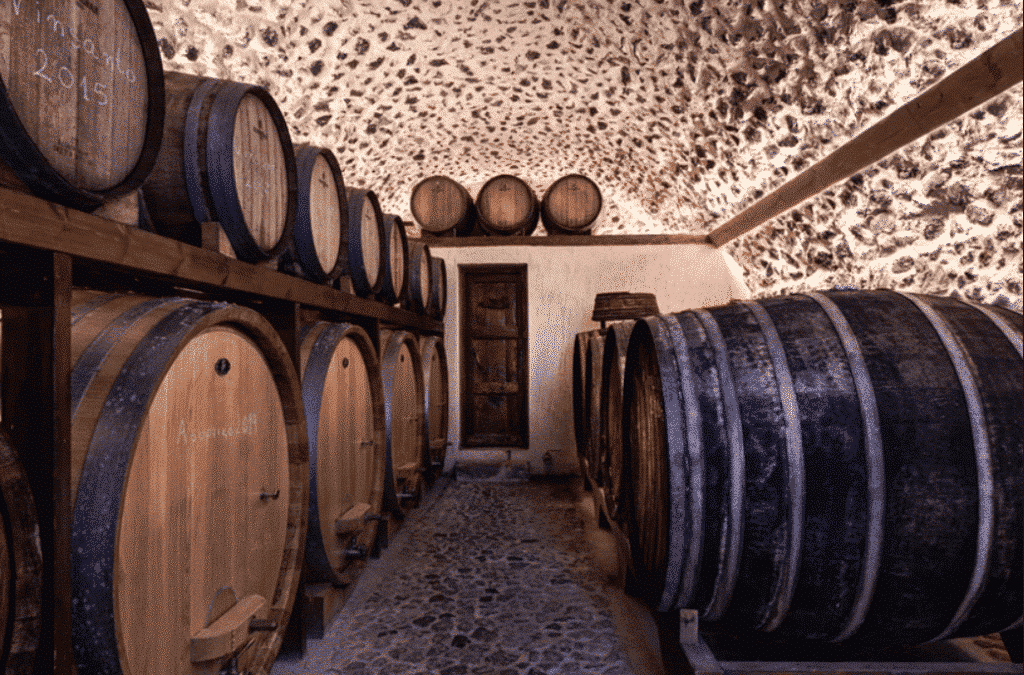
WINES AT ANDRONIS
Talking about the wine experience at Andronis, Sotiris says “Our goal is to honor the wine and the whole philosophy behind it. For this reason, we have varieties from all over the world, ready to match all the different tastes. We want to make sure that our variety is so great that our guests will definitely find something that appeals their taste. Thus we currently have 1285 labels and our list is constantly growing. Our vision is to create the largest list in Greece, to motivate others to identify with our mentality and to take wine further locally and internationally.”
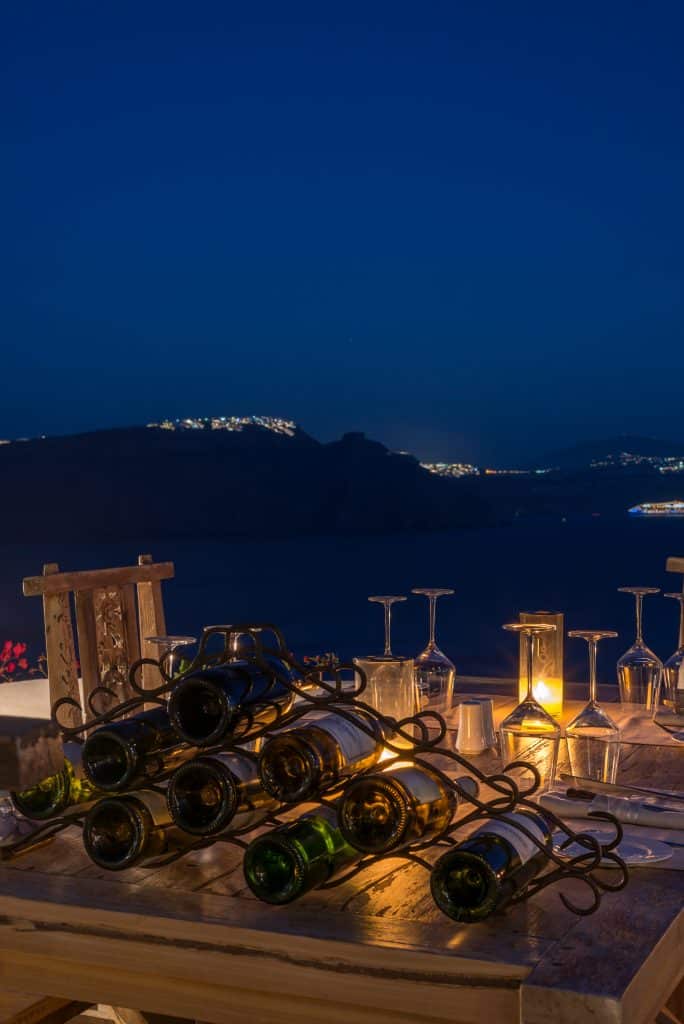
He also claims that wine is strongly intertwined with food. “Since we are constantly improving the gastronomic experience here at Andronis, the wine one is also being enhanced. We could not say that we emphasize in gastronomy, without improving the wine pairing experience as well. We want to create unique experiences for our guests, help them discover new combinations and enrich their palates with new styles and flavors.”
Since the Andronis restaurants and their cuisines are really different from one to the other, so is the wine pairing experience in each one. At Lauda we provide the Premium Wine Pairing, then at Lycabettus, one should try the Champagne pairing for a totally unique experience and at Opson, since the cuisine focuses on tastes of Ancient Greece, one will try winemaking with the least human interaction. “Our approach to wine is different as we adapt our choices to the needs of the customer and the style of the restaurant” Sotiris sums up.
Do you want to find out about Santorinian cuisine? Read our article about the Shining Stars of the Santorinian Cuisine.
